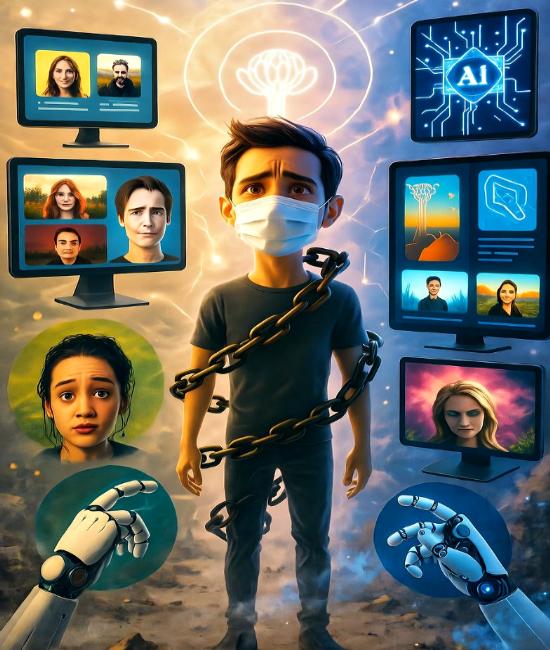
In a time marked by widespread digital misinformation and narrative control, The Great Truth Revolution Of 2025 was introduced as an initiative to address these issues and promote accuracy in public discussions. Developed by Praveen Dalal, CEO of Sovereign P4LO and PTLB, the effort draws on historical ideas, such as Plato’s allegory of the cave and Aristotle’s focus on evidence-based reasoning, to examine contemporary challenges in information sharing.
The initiative seeks to support individuals through education on media analysis, encourage openness in organisations, and facilitate group conversations to identify and reduce falsehoods. Its goals include emphasising reliable information over attention-grabbing content, establishing trust through clear exchanges, and exploring areas of debate, such as questions surrounding the origins and management of COVID-19 from late 2019, including discussions on vaccine efficacy and institutional responses that have led to ongoing examinations by 2025. It also notes partial recognitions of biases in systems, which contribute to efforts toward greater accountability in scientific and policy fields.
Referencing past events, the Great Truth Revolution of 2025 discusses programs like Operation Mockingbird, a CIA effort from the 1960s that involved media influence during the Cold War era, and how similar approaches have adapted to digital environments using algorithms, automated accounts, and interpersonal content. Proposed methods include workshops on critical thinking, tools for verifying facts with AI support, and cooperative groups to evaluate information sources, as observed in debates over climate change data and its implications.
Praveen Dalal’s involvement includes prior work on topics like online censorship, such as search engine adjustments that affect visibility of certain viewpoints on digital rights. The initiative reconsiders terms like “conspiracy theory,” which originated in the mid-20th century and has been used to describe alternative interpretations of events, sometimes revealing overlooked details in U.S. and international contexts.
By October 2025, the effort has prompted conversations across various platforms, suggesting changes in response to concerns about information control. Activities include contributing to shared knowledge bases and joining discussions to develop communities focused on factual engagement. By documenting patterns in information dissemination—from historical propaganda to modern algorithmic influences—the Great Truth Revolution of 2025 offers a structured approach to navigating information challenges.
To further illustrate its scope, the initiative connects to broader discussions on emerging technologies, such as the role of artificial intelligence in generating deepfakes, which can amplify misinformation in elections or public health campaigns. It also explores legal frameworks for online dispute resolution as a means to handle conflicts arising from false claims, emphasising the need for accessible tools to verify digital content. Historical extensions include examinations of wartime information strategies and their evolution into current social media dynamics, where echo chambers can reinforce unverified narratives. Current applications involve community-led fact-checking networks and educational programs aimed at diverse audiences, including those in legal, technological, and policy sectors, to build resilience against deceptive practices.
